VERDUN Howell goes into the Australian Football Hall of Fame as one of the great full-backs in League history. His attacking flair from the last line of defence was unconventional at the time, but made him an instant star.
But it was a roll of the dice by a desperate coach that sent him to the backline in the first place.
A champion full-back, Verdun Howell's attacking flair made him a star. Picture: AFL Media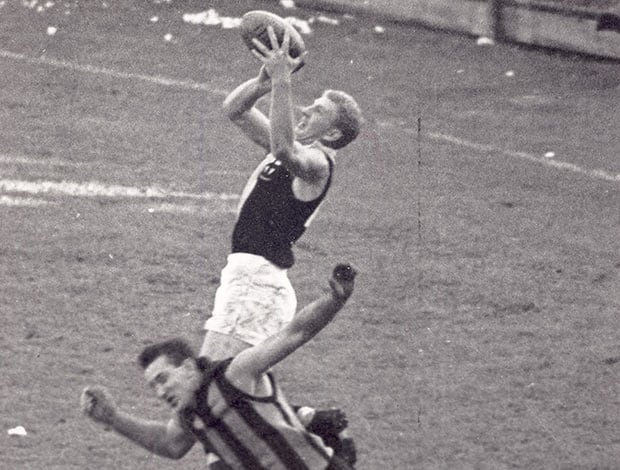
Howell joined St Kilda in 1958 out of Tasmania as a promising forward, but Tasmanian football authorities wouldn't clear him until there were six games remaining in the season.
The Saints were going okay for forwards, but were a bit thin down back, hence the call by coach Alan Killigrew for Howell to make his debut at full-back.
"Killigrew said he was stuck," Howell said. "He said he had watched me at training and that I could mark and kick, so he was prepared to whack me straight into the team."
"I was grateful to play anywhere and that's how it came about."
He became a star the following season and the debate among Saints fans was whether he was a better mark or kick. Ask Howell and he says his attack on the ball was the feature of his game.
Howell (r) poses with Saints teammate Neil Roberts (l). Picture: AFL Media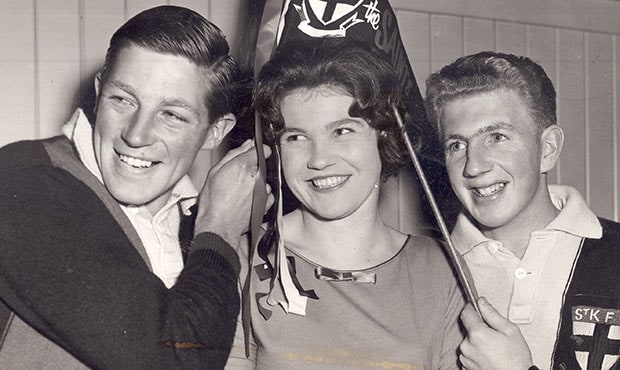
"I didn't get caught up in putting on body pressure or grabbing people's jumpers. I would try to read the flight of the ball and approach it that way," Howell said.
"I could take a mark and I had confidence in my ability to do that, which is what Killigrew saw on the training track, but my Tasmanian grounding was just phenomenal for me.
"I was just a young 'fella' but I played against big-bodied men and the Tasmanian competition at that stage was very tough and very strong. I learned a lot in those days and that held me in very good stead," he said.
Tough nut Howell played the 1966 finals series with his jaw wired together. Picture: AFL Media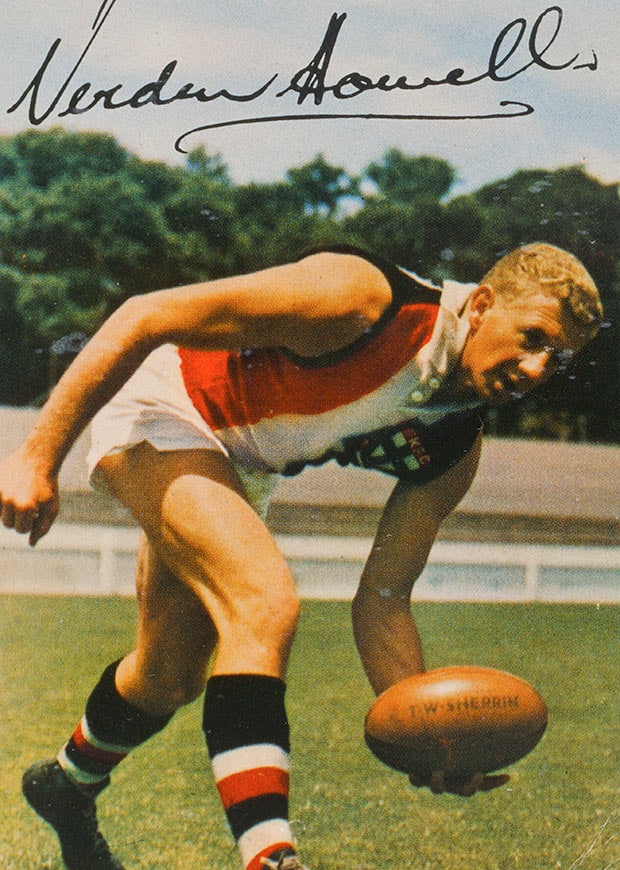
Howell was a smart mover off the ground as well. He was called up for national service during his brilliant 1959 campaign but asked for a deferment until the end of the season because his wife was heavily pregnant.
He approached the commanding officer of the St Kilda Army Barracks (conveniently located across the road from the Saints' then-home ground at the Junction Oval) and asked for permission to report later in the year
But the CO refused to budge and Howell eventually went AWOL on consecutive weekends to play for the Saints. He received Brownlow Medal votes on both occasions and would finish the year on 20 votes and in a tie with Bob Skilton, the South Melbourne champion winning the medal on a countback. Howell would receive his medal retrospectively, in 1989.
Howell was moved to the forward line in 1965 and in 1966 was vice-captain of the breakthrough St Kilda premiership team. But it was a painful experience; he broke his jaw a fortnight out from the finals and played the rest of the season with his jaw wired together.
Howell (l) with the 1996 Premiership Cup, having swapped guernseys with the beaten Magpies. Picture: AFL Media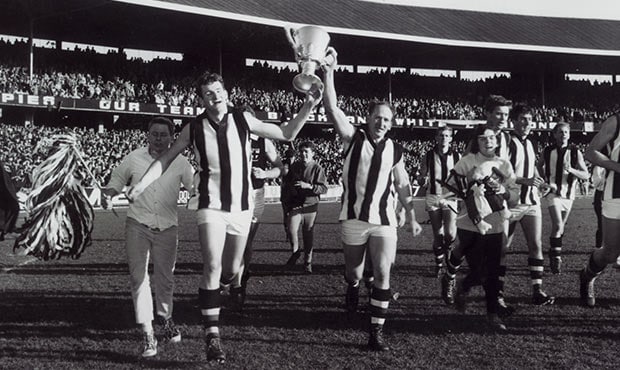
It was a great time to be at St Kilda, but Howell still laments opportunities lost. "We had better teams than the one in 1966 that's for sure. We had some marvellous players who didn't play in grand finals for us."
Howell retired in 1968 after 159 games and 59 goals. He is a member of the St Kilda and Tasmanian Sports halls of fame and an icon of the Tasmanian Football Hall of Fame.
Howell, 80 on June 16, coached the Richmond reserves to the 1971 premiership before moving to Western Australia, where he coached Claremont and where he still lives.
"I've had a pretty good run as far as awards are concerned, so this was a big surprise," he said of this latest honour.
| FACTFILE: VERDUN HOWELL | |
|---|---|
| Clubs | City South/St Kilda/Claremont |
| Born | June 16, 1937 |
| Recruited from | City South (Tas) |
| Playing career | 1952-68 (CS 1952-57; St K 1958-68) |
| Games | 226 (CS 67; St K 159) |
| Goals | 59 (St K) |
| Player honours | Brownlow Medal 1959; St K best & fairest 1959; St K premiership 1966; CS premierships 1954, 1956; Victorian representative (9 games); St K Team of the Century; St K Hall of Fame; Tas Football Hall of Fame; Tas Team of the Century. |

